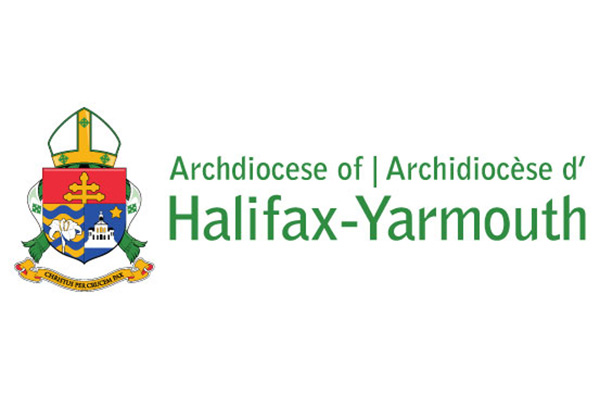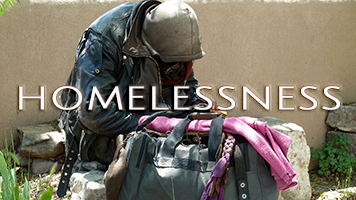What are the Pastoral Priorities?
As followers of Christ we are called to live the mission that he entrusted to us: Go preach the gospel and make disciples!
How are we doing this in the Archdiocese of Halifax-Yarmouth? In January of 2020 we began the journey of becoming a diocese with 20 parishes (plus the Cathedral). At the end of year that saw us trying to become new parishes oriented to our mission in the midst of a global pandemic, we also faced another major diocesan change: the succession of a new bishop. Archbishop Dunn became the second archbishop of the Archdiocese of Halifax-Yarmouth on November 27, 2020. As our new bishop, Archbishop Dunn wanted to build on the hard work the people and parishes of the Archdiocese began. To so, in January 2021 he shared four pastoral priorities that he wants us as a diocese to focus on. These priorities are shaped by our already established diocesan values of mission, community, and, formation.
The four pastoral priorities are: Evangelization, Homelessness, Parish Identity, and Catechesis. Archbishop Dunn offers his reflections on these priorities in a Pastoral Letter to the faithful release on January 28.

January 28, 2021
Dear Brothers and Sisters in Christ,
As we begin 2021 it is important to build on the good work done in our pastoral plan Equip the Saints and set some goals and priorities for our work this year. In my letter to the clergy on November 27, 2020, I outlined some of the areas of pastoral concern that I see within our archdiocese. In addition to these, I have also heard the concerns of people and pastors in our many meetings and visits over the course of this pandemic. With these reflections in mind, I would like to highlight the following pastoral priorities for the Archdiocese of Halifax-Yarmouth for 2021:
1. Evangelization 2. Homelessness
3. Parish Identity 4. Catechesis
These priorities are specific reflections of our diocesan values of Mission, Community, and Formation. Each Parish is asked to consider these priorities and to develop appropriate plans for a response at a local level. Recalling that our Parish Pastoral Councils are mandated with the task of planning, I hope these topics will inform their study and discernment for the coming year. Meanwhile Parish Finance Councils need to prioritize these items in budgeting and planning. To assist us in these deliberations I offer a few short reflections on each priority.
Evangelization
“Since its inception, the Parish is envisioned as a response to a precise pastoral need, namely that of bringing the Gospel to the People through the proclamation of the faith and the celebration of the Sacraments” (Congregation for the Clergy, Instruction, The pastoral conversion of the Parish community in the service of the evangelising mission of the Church, June 29, 2020, n. 7).
Evangelization – proclaiming the good news of the life, death, and resurrection of Jesus Christ – is the primary activity of the Church. Each new Parish must have a plan for evangelization with a commitment to a particular program of evangelization. Significant time, energy, and resources should be invested in reaching the various audiences of the new evangelization: those who have never heard the Word of God, those who have heard the Word of God but fallen away, and those who have heard the Word of God yet require ever deepening conversion. No one program is perfect; however, the quality of people and commitment of leadership can overcome these imperfections. The staff at the diocesan centre are ready to help your discernment with training, facilitation, and recommendations. Each new Parish is asked to have a plan for evangelization with a commitment to a particular program of evangelization by the beginning of September 2021.
Homelessness
“A ‘sanctuary’ open to all, the Parish, called to reach out to everyone, without exception, should remember that the poor and excluded must always have a privileged place in the heart of the Church” (The pastoral conversion of the Parish community, n. 32).
While many are without homes in Nova Scotia, many more are presented with the impossible choice of whether they spend what little they have on shelter or food. I realize that many of our Parishes have ministries dedicated to these and other social issues, e.g., food banks, various kinds of outreach, etc. This can provide a variety of opportunities where we can collaborate with our brothers and sisters of other Christian denominations. Our new Parishes have many properties, some of them surplus, and I ask Parish leadership to consider whether some existing resources can be diverted for the service of the homeless in some way. I intend to bring these same questions for study to my diocesan staff, Diocesan Property Committee, Diocesan Building Committee, and Diocesan Finance Council to find areas where the diocese can also contribute more to this area of concern. I am asking each Parish to review your communities, to see what more can be done to build partnerships in our areas, to attack root causes, and to help as many people as possible. Each Parish is asked to submit by June 30th an inventory of efforts that are being made to assist the needy and homeless.
Parish Identity
“Naturally, a Parish must be a place that brings people together and fosters long-term personal relationships, thereby giving people a sense of belonging and being wanted”; “it is necessary to find new forms of accompaniment and closeness” (The pastoral conversion of the Parish community, nn. 25 and 14).
In many ways the global pandemic compounded the issues related to creating new Parishes. While we had names and decrees, the sudden onset of lockdowns and restricted gatherings made bringing people together in our new Parishes impossible. Parishes were unable to gather and struggled to find new ways to connect. The experience of the disorientation and disconnection of merger was a difficult experience for the whole parish: pastors as they were trying to lead, staff coming together, and parishioners trying to come to grips with a new parochial reality. Bringing communities together is not an easy task, and the circumstances of this past year compounded a very difficult endeavour. Over the past number of months, relationships within parishes often were strained and various areas of the parish tried to obtain a certain autonomy or to regain control of certain elements of parish life.
Every one of our new Parishes needs to commit to developing a new Parish identity that is positive and united, regardless of the number of people or number of buildings. The focus must be on the whole community of the faithful that makes up the parish, rather than particular groups that gather at individual churches. Doing so will require fostering healthy relationships and new understandings of Parish life and roles. As bishop, I am ready to come to meet with people in every Parish to help facilitate this process of growth in identity. Perhaps the Pastoral Council could survey parishioners to see what is contributing to unity and what is challenging the movement toward being a united parish with one identity and create an action plan to address these needs by June 30th, 2021.
Catechesis
“The renewal of evangelisation requires a new approach with diverse pastoral proposals, so that the Word of God and the sacramental life can reach everyone in a way that is coherent with their state in life” (The pastoral conversion of the Parish community, n. 18).
I am deeply troubled by the disruption in faith formation during this pandemic. I am grateful to catechists and leaders in all Parishes who have made fantastic adjustments to online and home-based activities during the pandemic. While there is still much work to be done, we can celebrate and build on these successes. In addition to a program of evangelization, each Parish must have a process of ongoing formation in faith for children and adults. Growth in our closeness to the Lord and friendship with Him comes not only from study but also from encounter. All of our methods should be holistic in their approach to formation: human, spiritual, intellectual, and pastoral. To aid in realizing this goal I am working with catechists and diocesan staff to produce a local directory for catechesis that will give Parishes the framework to develop and evaluate their catechetical efforts. In addition to a program of evangelization, each Parish is asked to have a process of ongoing formation in faith for children and adults in place for the coming pastoral year beginning in September 2021.
Unfortunately, 2020 saw us isolated and apart. However, we also learned to come together in new ways and challenge old methods. I pray that, this year, we build on this spirit of newness to breathe new life into our shared missionary vision. The Word of God is ever new and, in times such as these where people are anxious, afraid, and alone, the message of the Gospel is an encouragement to new life and new hope.
May our working together be guided by the Holy Spirit to bring this new life and new hope to as many people as possible this year.
Sincerely in Christ,
✝Brian Joseph Dunn
Archbishop of Halifax-Yarmouth
 le 28 janvier 2021
le 28 janvier 2021
Chers frères et sœurs dans le Christ,
Alors que nous commençons 2021, il est important de s’appuyer sur le bon travail accompli dans notre plan pastoral Équiper les saints et de fixer des objectifs et des priorités pour notre travail cette année. Dans ma lettre au clergé du 27 novembre 2020, j'ai souligné certains des domaines de préoccupation pastorale que je vois au sein de notre archidiocèse. En plus de ceux-ci, j'ai également entendu les préoccupations des gens et des pasteurs lors de nos nombreuses réunions et visites au cours de cette pandémie. Avec ces réflexions à l'esprit, je voudrais souligner les priorités pastorales suivantes pour l'archidiocèse de Halifax-Yarmouth pour 2021:
1. Évangélisation 2. Itinérance
3. Identité paroissiale 4. Catéchèse
Ces priorités sont des reflets spécifiques de nos valeurs diocésaines de Mission, Communauté et Formation. Chaque paroisse est invitée à considérer ces priorités et à élaborer des plans appropriés pour une réponse au niveau local. Rappelant que nos Conseils pastoraux paroissiaux sont mandatés avec la tâche de planification, j'espère que ces sujets éclaireront leur étude et leur discernement pour l'année à venir. Pendant ce temps, les conseils des finances paroissiaux doivent donner la priorité à ces éléments dans la budgétisation et la planification. Pour nous aider dans ces délibérations, je propose quelques brèves réflexions sur chaque priorité.
Évangélisation
« Depuis son apparition, la paroisse se présente donc comme réponse à une exigence pastorale précise, rendre l’Évangile proche du Peuple, par l’annonce de la foi et la célébration des sacrements » (Congrégation pour le Clergé, Instruction, La conversion pastorale de la communauté paroissiale au service de la mission évangélisatrice de l’Église, 29 juin 2020, n. 7).
L'évangélisation - proclamer la bonne nouvelle de la vie, de la mort et de la résurrection de Jésus-Christ - est l'activité principale de l'Église. Chaque nouvelle paroisse doit avoir un plan d'évangélisation avec un engagement à un programme particulier d'évangélisation. Il faut investir beaucoup de temps, d'énergie et de ressources pour atteindre les différents publics de la nouvelle évangélisation: ceux qui n'ont jamais entendu la Parole de Dieu, ceux qui ont entendu la Parole de Dieu mais elle est tombée loin d’eux, et ceux qui ont entendu la Parole de Dieu mais qui ont encore besoin d'une conversion toujours plus profonde. Aucun programme n'est parfait; cependant, la qualité des personnes et l'engagement du leadership peuvent aider à surmonter ces imperfections. Le personnel du centre diocésain est prêt à vous aider dans votre discernement par la formation, l'animation et en vous faisant des recommandations pour aider votre travail. Il est demandé à chaque nouvelle paroisse d'avoir un plan d'évangélisation avec un engagement dans un programme particulier d'évangélisation d'ici le début de septembre 2021.
Itinérance
« “Sanctuaire” ouvert à tous, la paroisse, qui doit aussi rejoindre chacun sans exception, rappelle que les pauvres et les exclus doivent toujours avoir une place privilégiée dans le cœur de l’Eglise » (La conversion pastorale de la communauté paroissiale, n. 32).
Alors que beaucoup sont sans domicile en Nouvelle-Écosse, beaucoup d'autres se voient imposer le choix impossible de dépenser le peu qu'ils ont pour se loger ou se nourrir. Je me rends compte que beaucoup de nos paroisses ont des ministères consacrés à ces problèmes et à d'autres problèmes sociaux, par exemple, les banques alimentaires, divers types de sensibilisation, etc. Cela peut fournir une variété d'opportunités où nous pouvons collaborer avec nos frères et sœurs d'autres dénominations chrétiennes. Nos nouvelles paroisses ont de nombreuses propriétés, dont certaines sont excédentaires, et je demande à la direction de la paroisse de se demander si certaines ressources existantes peuvent être détournées pour le service des sans-abri d'une manière ou d'une autre. J'ai l'intention de soumettre ces mêmes questions à l'étude à mon personnel diocésain, au Comité diocésain des propriétés, au Comité diocésain du bâtiment et au Conseil diocésain des finances pour trouver des domaines dans lesquels le diocèse peut également contribuer davantage à ce domaine de préoccupation. Je demande à chaque paroisse de passer en revue vos communautés, de voir ce qui peut être fait de plus pour construire des partenariats dans nos régions, s'attaquer aux causes profondes de l’itinérance et aider le plus de gens possible. Chaque paroisse est invitée à soumettre avant le 30 juin un inventaire des efforts déployés pour venir en aide aux nécessiteux et aux sans-abri.
Identité paroissiale
« Il est donc nécessaire que la paroisse soit le “lieu” qui donne le désir d’être ensemble et fait grandir les relations personnelles durables »; «la paroisse est appelée à trouver d’autres modalités de proximité par rapport aux activités habituelles » (La conversion pastorale de la communauté paroissiale, nn. 25 et 14).
À bien des égards, la pandémie mondiale a aggravé les problèmes liés à la création de nouvelles paroisses. Bien que nous ayons des noms et des décrets, l'apparition soudaine de confinements et de rassemblements restreints a rendu impossible le rassemblement des gens dans nos nouvelles paroisses. Les paroisses n'ont pas pu se rassembler et ont eu du mal à trouver de nouvelles façons de se connecter. L'expérience de la désorientation et de la déconnexion de la fusion a été une expérience difficile pour toute la paroisse: les pasteurs essayant de diriger, le personnel essayant de se rassembler et les paroissiens essayant de se saisir d'une nouvelle réalité paroissiale. Rassembler les communautés n'est pas une tâche facile, et les circonstances de l'année écoulée ont compliqué une entreprise très difficile. Au cours des derniers mois, les relations au sein des paroisses ont souvent été tendues et divers secteurs de la paroisse ont tenté d'obtenir une certaine autonomie ou de reprendre le contrôle de certains éléments de la vie paroissiale.
Chacune de nos nouvelles paroisses doit s'engager à développer une nouvelle identité paroissiale positive et solidaire, quel que soit le nombre de personnes ou le nombre de bâtiments. L'accent doit être mis sur toute la communauté des fidèles qui compose la paroisse, plutôt que sur des groupes particuliers qui se rassemblent dans des églises individuelles. Pour ce faire, il faudra favoriser des relations saines et une nouvelle compréhension de la vie et des rôles paroissiaux. En tant qu'évêque, je suis prêt à venir rencontrer des gens dans chaque paroisse pour aider à faciliter ce processus de croissance identitaire. Le Conseil pastoral pourrait peut-être interroger les paroissiens pour voir ce qui contribue à l'unité et ce qui met le mouvement au défi d'être une paroisse unie avec une seule identité et créer un plan d'action pour répondre à ces besoins d'ici le 30 juin 2021.
Catéchèse
« Le renouveau de l’évangélisation requière de nouvelles attentions et des propositions diversifiées, afin que la Parole de Dieu et la vie sacramentelle puissent rejoindre tout le monde, selon une manière qui soit cohérente avec l’état de vie de chacun » (La conversion pastorale de la communauté paroissiale, n. 18).
Je suis profondément troublé par la perturbation de la formation de la foi pendant cette pandémie. Je suis reconnaissant aux catéchistes et aux dirigeants de toutes les paroisses qui ont apporté des ajustements fantastiques aux activités en ligne et à domicile pendant la pandémie. Bien qu'il reste encore beaucoup à faire, nous pouvons célébrer ces succès et nous appuyer sur ces succès. En plus d'un programme d'évangélisation, chaque paroisse doit avoir un processus de formation continue à la foi pour les enfants et les adultes. La croissance de notre proximité avec le Seigneur et de notre amitié avec lui vient non seulement de l'étude mais aussi de la rencontre. Toutes nos méthodes doivent être holistiques dans leur approche de la formation: humaine, spirituelle, intellectuelle et pastorale. Pour aider à atteindre cet objectif, je travaille avec les catéchistes et le personnel diocésain pour produire un annuaire local de catéchèse qui donnera aux paroisses le cadre pour développer et évaluer leurs efforts catéchétiques. En plus d'un programme d'évangélisation, il est demandé à chaque paroisse de mettre en place un processus de formation continue à la foi pour les enfants et les adultes pour la prochaine année pastorale commençant en septembre 2021.
Malheureusement, 2020 nous a vus isolés et séparés. Cependant, nous avons également appris à nous rassembler de nouvelles manières et à remettre en question les anciennes méthodes. Je prie pour que, cette année, nous nous appuyions sur cet esprit de nouveauté pour insuffler une nouvelle vie à notre vision missionnaire commune. La Parole de Dieu est toujours nouvelle et, dans des temps comme ceux-ci où les gens sont anxieux, effrayés et seuls, le message de l'Évangile est un encouragement à une vie nouvelle et à une nouvelle espérance.
Que notre travail ensemble soit guidé par le Saint-Esprit pour apporter cette nouvelle vie et cette nouvelle espérance au plus grand nombre cette année.
Sincèrement dans le Christ,
✝Brian Joseph Dunn
Archevêque de Halifax-Yarmouth
Priority - Parish Identity

“Every one of our new Parishes needs to commit to developing a new Parish identity that is positive and united, regardless of the number of people or number of buildings. The focus must be on the whole community of the faithful that makes up the parish, rather than particular groups that gather at individual churches. Doing so will require fostering healthy relationships and new understandings of Parish life and roles.”
Priority - Homelessness

“While many are without homes in Nova Scotia, many more are presented with the impossible choice of whether they spend what little they have on shelter or food. I realize that many of our Parishes have ministries dedicated to these and other social issues, e.g., food banks, various kinds of outreach, etc. This can provide a variety of opportunities where we can collaborate with our brothers and sisters of other Christian denominations. Our new Parishes have many properties, some of them surplus, and I ask Parish leadership to consider whether some existing resources can be diverted for the service of the homeless in some way.”
Priority - Evangelization

“Evangelization – proclaiming the good news of the life, death, and resurrection of Jesus Christ – is the primary activity of the Church. Each new Parish must have a plan for evangelization with a commitment to a particular program of evangelization. Significant time, energy, and resources should be invested in reaching the various audiences of the new evangelization: those who have never heard the Word of God, those who have heard the Word of God but fallen away, and those who have heard the Word of God yet require ever deepening conversion”
How do we live out these Priorities in our Archdiocese?
So how do we, as a local Church bear fruit under each of priorities? For each of the above priorities Archbishop Dunn gives parishes a task and a timeline for those tasks. To support parishes in these activities the team in office of Pastoral Life & New Evangelization (PL&NE) and other diocesan staff will:
- develop and implement resources related to each priority
- research and curate existing initiatives and tools to share with parishes
- pray with and for parish leadership, that our combined efforts will be guided by the Holy Spirit!
Resources for this work will be made available on this page – so check back!
